
Features of each loan type such as loan length and interest rates will vary. There is a variety of loan types, here is a synopsis to assist you with the basics for each type of loan.
Whether you're looking for funds to purchase a new vehicle or buy a home, here's what you need to know about each kind of loan.
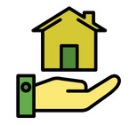
A mortgage loan is typically the largest amount of money borrowed, allowing you to purchase a home. Once the home has been purchased, upon each successful payment made, you will build equity.
There are different types of mortgage loans: Conventional, FHA, and VA to list a few. Each type of mortgage loan depends upon factors such as your background, income, and debt ratios.
Mortgage loans can be taken for 15, 20, or 30 years. Interest rates can be either fixed or variable. Interest rates change frequently, therefore the timing of your mortgage loan will influence the current rate.
Mortgages are secured loans, the property and home serves as collateral throughout the life of the mortgage loan. In the event you are unable to repay your mortgage, it may result with loss of your home.

A small business loan is a form of credit to support entrepreneurs gaining access to capital to expand a growing business.
Small business loans or SBA can be used to cover expenses for equipment, developing inventory, product development, or assisting with payroll.
A business loan often requires collateral, the individual business owner's credit score will impact the SBA. Other influencing factors include the number of years the business has existed, company cash flow, working capital, business plans, and debt-to-equity ratio.
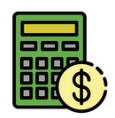
APRs - the Annual Percentage Rate (APR) is how much it will cost you to have the loan. This will include interest rates along with fees. A good credit score often results in a lower APR, thus costing you less money.
Borrowing Limits - determining factors for borrowing limits are often influenced by your income, credit history, and value of secured collateral.
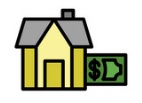
A home equity loan can often equally be called a second mortgage. Comparable to a mortgage, the property and home is used as collateral to secure the loan.
A home equity loan will require equity to exist between the initial home mortgage purchase and the time you made successful payments. Loan-to-Value ratio will be used to identify the amount of equity available for a home equity loan.
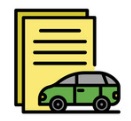
Auto loans are used to purchase new or used vehicles. Vehicle type can range from cars, trucks, to recreational vehicles.
Auto loans are secured by the vehicle purchased as collateral. The title to the vehicle will be retained by the bank until the auto loan has been fully paid off. Failure to make your auto loan payments will result with the loss of your vehicle.
Interest rate is typically fixed, with repayment terms ranging from 12-84 months. Monthly payment amounts are often influenced by the total cost of the vehicle purchase and the time period the auto loan is extended.
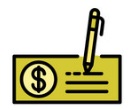
A personal loan is a form of credit typically used to consolidate debt, small home improvement projects, medical bills, and emergency expenses.
Personal loans are typically unsecured. Personal loans often require good credit score reflective of a consistent and solid credit history. Options might also exist to obtain a personal loan through collateral you already own, such as a vehicle title.


